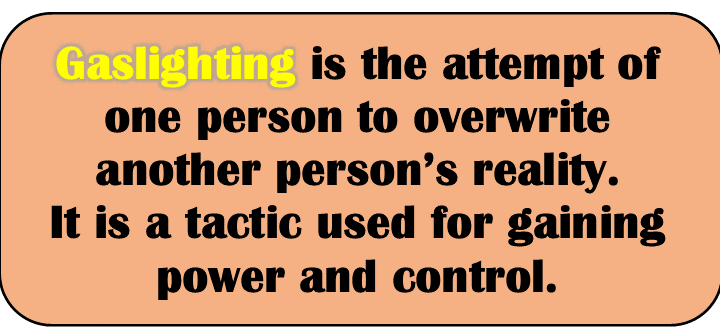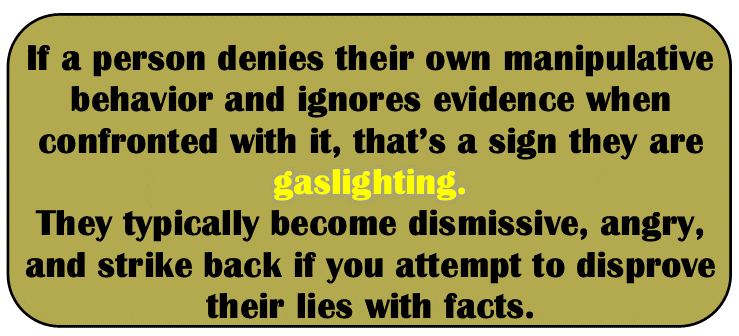When the president’s lies destroy the very concept of truth and reality for a nation, we must resist the gaslighting and practice radical integrity.

It’s been 556 days since Donald Trump put his hand on a Bible and promised that he would “faithfully execute the Office of President of the United States, [to] preserve, protect and defend the Constitution of the United States.” Since then, that oath has been broken and the 8th Commandment violated. From the beginning, he asserted outright lies as truth, along with his press secretary and surrogates. For example, when the world could see in real-time the size of the crowd gathered for the inauguration and contrast that to pictures of a much larger crowd for Obama’s inauguration, we could obviously tell the difference. Yet they disputed reality right in front of our eyes, asserting “alternative facts.”
Since then, the Washington Post has counted over 3000 false or misleading claims made by the president as of May 2018, averaging 6 – 9 per day.
Most recently, Trump’s tactics seemed to come straight from George Orwell’s 1984 when he stated in a speech on July 24, 2018: “What you’re seeing and what you’re reading is not what’s happening.” Esquire’s Jack Holmes explains the dangerous turn with this pernicious statement: “Lies that are not merely lies, but instead serve to destroy the very concept of truth, are a cornerstone of any authoritarian playbook.”
What is going on here?
In a word: gaslighting.

Gaslighting is the attempt of one person to overwrite another person’s reality. It is a tactic used for gaining power and control. The term gets its name from a 1938 play and 1944 film Gaslight starring Ingrid Bergman in which her husband would secretly dim the gaslight, but when she commented on it, he insisted she must be crazy. And he convinced others she was insane as well. Thus, gaslighting is a form of manipulation through persistent denial, misdirection, contradiction, and lying in an attempt to destabilize and delegitimize a person or group of people.
The point of gaslighting (sometimes called “mind games”) is to sow seeds of doubt, with the purpose of making the person or group question their own memory, perception, and sanity. Gaslighting is a favorite tactic used by people who exhibit narcissism. [Note that I am using the term “narcissism” in this piece to describe the behavior of extreme selfishness and self-centeredness, but I am not attributing the behavior to mental illness. There is a difference between the behavior and the diagnosis of narcissistic personality disorder. Psychological diagnosis is not my intention, nor something I am qualified to do.]
The underlying message of a gaslighter is always this: What you know to be true is not true.
Our country has been subjected to gaslighting by Trump, fake news, internet trolls, and Trump’s White House team that is hell-bent on imposing its xenophobic, white supremacist, homophobic, misogynistic, climate-change-denying, planet-destroying authoritarian agenda on our country and the world. Name-calling and stereotyping certain groups is another form of gaslighting, because it attempts to assign a demoralizing identity to a person or group, thus countering the reality that they are precious human beings whose lives matter. The long-term effects that this bullying and abuse will have on the collective psyche of our nation remain to be seen, but are certain to be felt for perhaps decades, even after this presidency ends.
[For an excellent perspective on how this gaslighting in the form of non-sequitor is affecting both social discourse and teaching in higher ed, read this article by Nancy Lynne Westfield, Associate Professor of Religious Education, Drew Theological School & Graduate Division of Religion.]
People of faith and nonreligious people of goodwill need to understand what is happening and how to counter the effects of gaslighting.
Faith leaders especially are obligated to name it, shame it, and speak truth, as well as educate and pastorally support their congregants who are being subjected to this psychological trauma (even if people don’t recognize it as such, or are unwittingly assenting to it).
Things to Know about Gaslighting:
* Gaslighting requires a belief that it is acceptable to overwrite another person’s reality.
Notice the way in which Trump has used the term “fake news” to accuse legitimate journalists and news outlets of being illegitimate. He is attempting to turn reality upside down. This encourages people to doubt that the institution of the press is necessary for a democracy to function. Resist all attempts to demonically alter reality.
* Gaslighting has the goal of actually changing who someone is, not just their behavior.
Note how the very character of our nation seems to have become distorted by the events of the campaign, the election, and this presidency. Be especially vigilant about practicing kindness, compassion, empathy, and active solidarity in order to counter the cruelty being normalized.
* Gaslighting doesn’t always involve anger or intimidation.
Often the gaslighter transforms themselves into the victim. Witness Trump’s tweets or verbal responses to criticism, the Russian attacks, anything that he believes is trying to diminish him. This is also typical narcissistic behavior in an attempt to exercise control. Don’t fall for it.
* Gaslighters accuse the victim of being the bully.
Abusers will often manipulate the story, the memory, the environment and witnesses to make it appear that they were the one who was abused by the actual victim. The victim wracks their brain trying to remember how and when this happened – and it didn’t. But they’re already mistrusting their memory, so they experience self-doubt. All the while the gaslighter deflects the reality, and often does so publicly. Remember how Trump would call Hillary a “nasty woman,” making it seem as if she was abusing him, when, in fact, just the opposite was happening? Also notice the way he plays the victim whenever the press or any public figure criticizes him. This is classic gaslighting from a narcissist and should not be allowed or assented to in any way.
* Gaslighting engages the victim in a hamster-wheel of illogical arguing and sucks up vast amounts of emotional energy.
You argue for hours, without resolution. You argue over things that shouldn’t be up for debate. There is no resolution and you feel drained afterward with no energy left for re-constructing a healthy self. This is a tactic for effectively shutting down resistance and allowing the gaslighter to have his or her own way. Press Secretary Sarah Huckabee Sanders uses this technique on journalists constantly, which exhausts anyone who tries to make sense of what’s happening.

So how do we counter this onslaught of gaslighting? Here are 6 tips for survival.
6 Ways to Respond to Gaslighting (and help others survive)
1. Name it, don’t normalize it.
When you see gaslighting happening, call it what it is. In Ten Commandments parlance, we call it “bearing false witness” – lying – and it is opposed to God’s will. So tell the truth. And do not accept lying behavior as normal. It’s not. It’s evil and it needs to be called out, held accountable, and resisted.
2. Do not enable it. Shut it down.
When a person is gaslighting, cut them off. Do not engage. Do not negotiate. Walk away, turn off the feed. Only if the abuser is willing to speak the truth and deal honestly with you can you resume a conversation. When it comes to the gaslighting of this administration, the lying is so pathological, the only recourse is to bring it to an end as swiftly as possible (yes, both the lying and the administration).
3. Check in with people you trust.
Who are the five people you can count on to help you figure out what’s real? Who are the people who value you, affirm you, boost you up and infuse you with courage? What people and groups equip you to resist the gaslighting and abuse? Who are your go-to folks who inspire you to be your best self? Make it a point to check in with them often. They are your psychological lifeline and safety net.
4. Listen and believe those who are confiding in you how they’re feeling and what they’re experiencing.
When someone is brave enough to share what they’re feeling about what’s happening in our nation, don’t belittle it or call them “snowflakes.” Demonstrate compassion, because it’s likely that this is dredging up experiences and emotions from their past or exacerbating what they’re already subjected to. Reassure them that they are not the problem, that they are a good person, and that they are strong enough to psychologically resist what is happening to them.
5. Help others to self-differentiate and find communities of resistance.
Self-differentiating means being able to separate feelings and thoughts, to base one’s responses on logical thought rather than a flood of emotions. When we do this with others, it frees us up to be able to work together to help those who are “the least of these” – the ones most at risk from this administration. Self-differentiating, together with working with a trusted group to resist evil and bring about positive change, helps make you stronger, clearer, more directed, more differentiated, and more compassionate. Hopefully your church or house of worship is a community of resistance. If not, find your local group of people actively working to resist this administration’s harmful policies.
6. If you are a person of faith, use every spiritual and religious resource available.
We have actions and words – rituals – that are designed to hold the vast range of feelings we are experiencing. Rely on that pattern of worship which gathers us in and sends us out. Pray without ceasing. And if you are a Christian, trust that the Spirit of God, through the compassion of Jesus Christ, is in our midst and has already gone ahead of us into this “grave new world.” We know what Mary and the other women found at the grave. The God of resurrection is already at work, coming to meet us from the other side. We will get through this – together – by keeping intact our honor, integrity, and compassion.

Leah D. Schade is a professor of preaching and worship and author of the book Creation-Crisis Preaching: Ecology, Theology, and the Pulpit (Chalice Press, 2015). She is an ordained minister in the Lutheran Church (ELCA).
Twitter: @LeahSchade
Facebook: https://www.facebook.com/LeahDSchade/.
Read more:
9 Reasons ‘Trumpy Bear’; is a Sham: The Cuddlefication of a Despot













